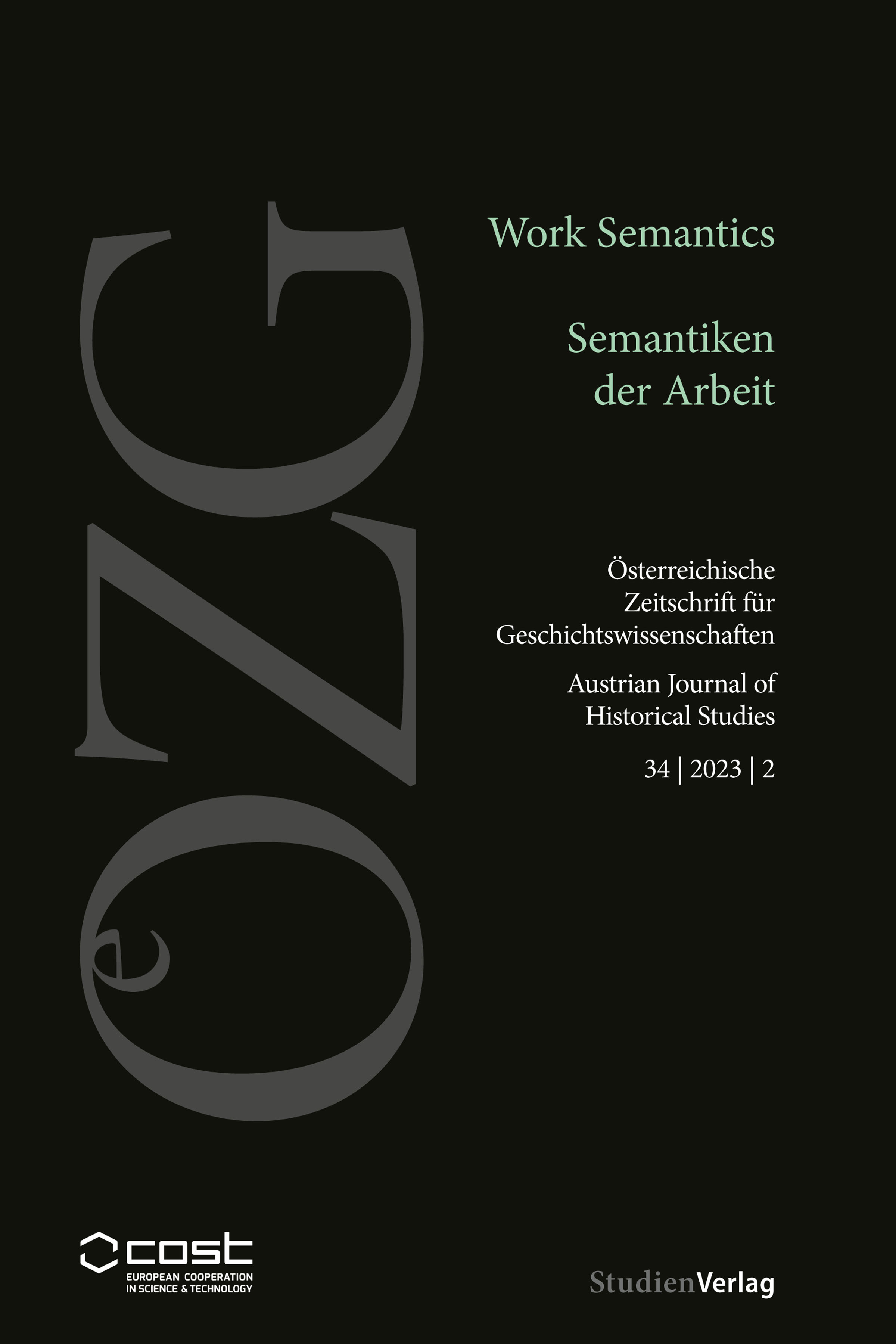Historical Semantics – A Vade Mecum
DOI:
https://doi.org/10.25365/oezg-2023-34-2-2Keywords:
historical semantics, micro semantics, computational semantics, social history, conceptual history, digital history, corpora,, onomasiological, semasiological, emic, etic, language useAbstract
This paper presents the historical semantics approach as a method for social history. While usually understood either as a form of conceptual and intellectual history of ideas or as a subdiscipline of philology and digital humanities, the authors of this article use historical semantics to address the way historians read their sources. The approach is presented as a necessary extension of historical methodology: Historians need to distrust their own common sense, depart from presupposed analytical categories and concepts, and base their interpretative work on the emic vocabulary of the societies under examination and on the document(s) forming the material legacy of the past. By linking words to historical and potential situations of language use, the historical semantics approach reveals the social taxonomies and inherent power relations between the dominant and the dominated. The paper outlines the guiding principles and methodological implications of this approach before presenting four concise vignettes illustrating the analytical potential and methodological diversity of the approach based on concrete case studies.
Downloads
Published
How to Cite
Issue
Section
License
Copyright (c) 2023 Austrian Journal of Historical Studies

This work is licensed under a Creative Commons Attribution 4.0 International License.


